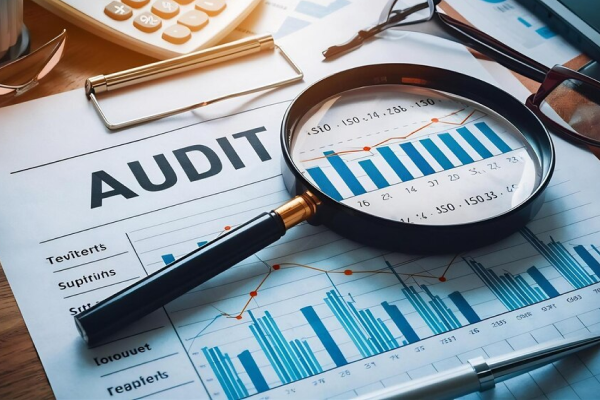An accurate assessment of your firm’s worth is essential, whether your goal is to raise capital, sell the company, or plan for its expansion. Your company’s financial standing, operational efficacy, and market position may be better understood with the help of a professional business appraisal.
Strategic planning, financial transparency, and an in-depth examination of market trends are necessary for accurate company valuation. Accurate and positive valuations are the result of painstaking attention to detail throughout the process, from collecting necessary documentation to evaluating intangible assets. We’ve put together this detailed guide to help you prepare for your company appraisal like an expert.
Get Your Financial Statements
Reliable financial reporting by a Corporate Finance Consulting Company is the bedrock of any company valuation. Financial statements covering the last three to five years, including income, balance, and cash flow, will be reviewed in detail by an expert in the field of valuation. Examining these data may uncover sales, profitability, and financial stability trends. The existence of red flags, such as insufficient or disorganized financial documentation, could result in valuation inconsistencies or lower estimated worth.
Evaluate the Real and Conceptual Assets
Assets that improve operational efficiency and market competitiveness are also included when calculating a company’s worth and revenue. Accurate documentation and appraisal of tangible assets is required, including but not limited to real estate, equipment, inventories, and automobiles. A negative effect on value statistics might result from not factoring in depreciated assets or outmoded goods. To ensure your company’s worth is taking into account all of its important aspects, it’s a good idea to do an internal asset evaluation by our Business Valuation Consulting Service Midwest.
Take Stock of Your Earnings and Margin
Key markers of a company’s financial health include consistent increases in sales and excellent profit margins. In order to determine a company’s worth, valuation specialists look at past revenue patterns and project how much money they may make in the future. A negative effect on value could result from revenue streams that are too reliant on one client or market area.
Get to Know Your Field and Your Place in the Market
Outside market forces are major considerations when estimating a company’s worth. Valuation results are affected by market forces, rivalry within an industry, and general economic health. A company in a booming market with plenty of potential customers would probably fetch a higher price than one in a slumping one.
It is helpful to compare your company to others in the same sector by doing a market study before valuation by a Corporate Finance Consulting Company.
Evaluate the Financial Position of Your Company
A company’s value is very sensitive to the level of outstanding loans and obligations. Although some debt is normal, having too much on your books might make your company seem less appealing to financiers and consumers. It is essential to keep detailed records and evaluate all business debts, including unpaid bills from vendors and overdue tax responsibilities.
Check Your Client’s Retention Rate and Base
An important factor in determining a company’s worth is the strength and loyalty of its client base. Our Data Driven Financial Reporting Services experts say, “Companies that have a history of satisfied customers and solid contracts over extended periods of time are often valued more since their income streams are more reliable.” On the other side, the stability of future profits can be called into question by a client base that is either diminishing or inconsistent. To better understand the company’s strengths, analyzing client demographics, satisfaction levels, and contract renewal rates is helpful.
Evaluate the Staff’s Efficiency and the Company’s Structure
Operational value is enhanced when a staff is organized and works efficiently. Employee output, leadership efficacy, and reliance on key persons are all factors that valuation specialists consider. A company’s worth might take a hit if it’s perceived as too dependent on a single person, such as the founder or a senior executive.
Figure Out Which Approach to Valuation Is Best
There is no universal formula for determining a company’s worth. Depending on the kind of firm and the norms in the sector, various valuation methodologies provide varying outcomes. The three most popular options are valuation methods: A company’s net value may be determined using an asset-based valuation method, which involves deducting liabilities from total assets. When company owners are familiar with these valuation approaches, they are better able to set realistic goals. Considering industry standards and company specifics, the best approach can only be determined by consulting with a Business Valuation Consulting Company.
Craft an Engaging Business Story
A company’s potential might be better understood by looking at more than just the numbers. A captivating story outlining the company’s strengths, development prospects, and competitive advantages is essential to any well-prepared valuation. Among the topics that should be included in this story are the following: future growth plans, strategic collaborations, successful case studies, and distinctive selling factors. Building investor confidence and setting the company up for successful negotiations are two outcomes of a captivating story.
Collaborate with Accredited Valuation Specialists
Valuing a company is no easy task; it calls for someone with an extensive understanding of both finance and the business. Attempting a value on your own could result in undervaluation, unreasonable expectations, or erroneous judgments. The proper interpretation of financial data and the use of industry-standard procedures by Business Growth Consulting Service Midwest are guaranteed when you engage a qualified company valuation specialist.



